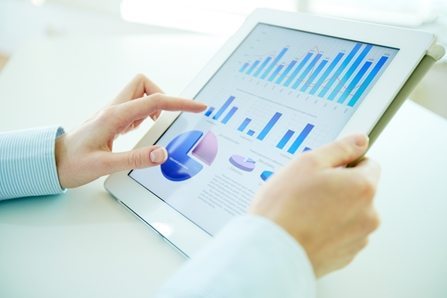As more organizations deploy reporting analytics solutions to automate core accounting and evaluation procedures, several trends have emerged that indicate where utilization of these technologies might be heading. The simultaneous explosion of data generation and increased need for more accurate and timely intelligence amid intensifying market competition has led many firms to reconsider their approaches to reporting and the use of automation software.
First, it is important to remember why companies are so inclined to invest in automation solutions for data-related matters, which is essentially contained within the lack of accuracy and efficiency in reporting when traditional methodologies are used. When errors become an issue, the chances of a firm being responsive to compliance and reporting responsibilities will generally dissipate, while the effectiveness of analysis will also suffer in these situations.
On the efficiency side, manual data entry is one of the biggest drivers of waste today, not to mention the fact that studies have found employee engagement declines when arduous, repetitive tasks are required. As such, reporting analytics solutions can work to alleviate the strain of traditional evaluations and accounting to the betterment of a variety of employees and departments, as well as the organization itself.
Now, taking the conversation to a higher level, reporting analytics have become popular for menial, repetitive and common tasks, but companies are also beginning to take the next steps toward advanced utilization of these solutions. Thanks to the convergence of a greater level of comfort with the solutions and a broader variety of powerful, intuitive technologies to choose from, businesses have a lot to gain from becoming a bit more progressive in their management of reporting analytics.
The social question
Much of the discussion regarding big data and reporting analytics has been traced back to marketing, as many companies chose to first deploy the technology to strengthen market research practices and branding initiatives. However, some have started to argue that certain types of data that would often only be used for marketing purposes might also help companies using reporting analytics solutions to make sound operational changes.
Forbes recently listed several common corporate dilemmas that might be eradicated through the alignment of social media information generation and collection with reporting analytics tools. According to the news provider, many firms will face significant credibility issues, especially when they are beginning to re-brand or develop an entirely new model of management and objectives, and the challenges contained therein can often be sidestepped with the right types of intelligence.
Not only can social media-targeted reporting analytics solutions reveal where the firm stands in the eyes of its current and prospective employees, the solutions will also illuminate which internal procedures might need to be adjusted to strengthen performance on a large scale. The source pointed out that when a company does not understand the needs of its customers, is lacking in fiber with respect to the brand or cannot differentiate itself from competitors, reporting analytics can also be highly effective.
Social media data is generally invaluable when used and analyzed properly, while the sheer volume of information clearly indicates that companies are in need of automated reporting solutions. By formulating a sound strategy to manage the use of reporting analytics tools for various pursuits and objectives, then selecting the solution that most closely aligns with these initiatives, the business can comprehensively refine its operations for modern success.
Other potential applications
Again, marketing and brand-related initiatives tend to be the most popular targets of reporting analytics and big data deployments in the current market landscape, but companies are already beginning to use these solutions for other purposes. For example, intelligence-related matters such as those that relate to cybersecurity and general workforce management can be significantly enhanced through the use of reporting analytics solutions.
Client relationship management, enterprise resource planning and workflow oversight can likewise be positively refined through the use of automation tools that include reporting components. After all, the value of data, regardless of which types of information might be contained therein, is continuing to rise amid the ubiquity of reporting and analysis tools, and companies can put themselves in the driver's seat with respect to decision-making through the implementation and optimization of new technologies.
Remember, the most successful businesses today – and likely for the foreseeable future – are those that maximize agility and speed with respect to operational and strategic initiatives. The rapid evolution of markets, including changing preferences among corporate purchasers and consumers, is forcing the issue in this regard, and agility can often be achieved and sustained through the use of more effective, modernized IT assets.
Regardless of which industry a firm might be competing in, the use of reporting analytics solutions is increasingly recommended to tackle compliance, accounting, workflow, operational efficiency and other challenges.






